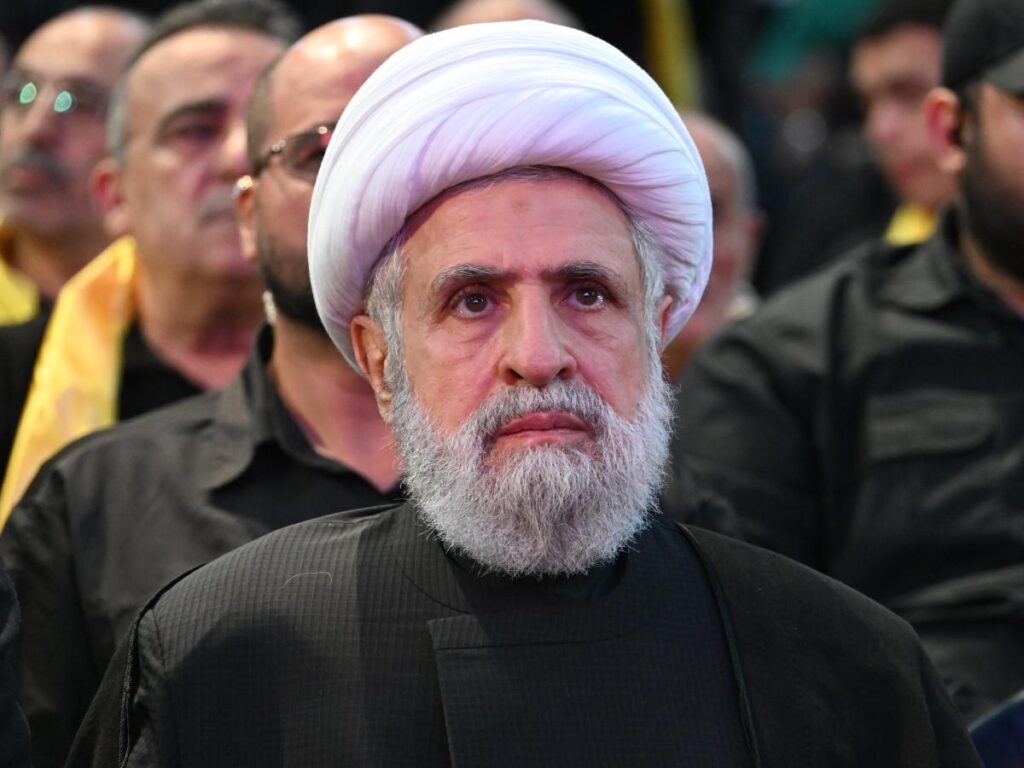On Tuesday, Hezbollah announced Naim Qassem as its new chief, succeeding longtime leader Hassan Nasrallah, who was killed in a targeted strike by Israel last month. Following Nasrallah’s death, along with that of his cousin Hashem Safieddine, Qassem, a founding member of the group, was appointed as secretary-general. Having served as the deputy leader for over three decades, Qassem is a seasoned figure within Hezbollah, established in the 1980s amid Lebanon’s civil war. While Qassem was not initially positioned to lead after the death of the former deputy leader in 1992, he has effectively remained Nasrallah’s right-hand man throughout his 32-year leadership.
In the wake of Nasrallah’s death, the militant group has faced escalating tensions in the region, particularly following the flare-up of hostilities after the Hamas attacks on Israel on October 7, 2023. The situation rapidly deteriorated as Hezbollah launched retaliatory barrages against Israel and, in response, Israel initiated a significant military campaign targeting Hezbollah, resulting in considerable losses for the group. As a consequence of the rising conflict, Qassem has assumed a crucial leadership role, emerging as Hezbollah’s principal spokesman and addressing the public through a series of televised appearances that signal both continuity and a potential shift in militant strategy.
Qassem has a history of public engagement, having authored several books and previously hosted a YouTube channel, which has since been deleted. His literary contributions include “Hizbullah: The Story from Within,” which provided insights into the organization’s internal dynamics. Known for his articulate defense of Hezbollah’s position and criticisms of Western policies, particularly that of the United States, Qassem has maintained a strong anti-American rhetoric, blaming the U.S. for its complicity in Israeli actions against Lebanon. This stance reinforces his leadership style as he prepares to guide Hezbollah through a precarious period of increased Israeli military activity.
Following the deaths of both Nasrallah and Safieddine, Qassem’s leadership is being scrutinized amid a dire economic landscape in Lebanon, where Hezbollah wields significant influence over governmental affairs. With the aftermath of ongoing military confrontations with Israel, the United Nations Development Program has projected a potential contraction of up to 9.2% in Lebanon’s economy if hostilities persist through the end of the year. As the country faces crippling economic challenges, Qassem’s ability to navigate domestic stability while sustaining Hezbollah’s militant operations will be integral to his new role.
The positions taken by Qassem signal a possible recalibration of Hezbollah’s military strategy, particularly in light of the increased Israeli aggressiveness. In recent addresses, he has mentioned a “new calculation” aimed at intensifying military pressure on Israel unless a cease-fire is established. This approach suggests that Hezbollah may be seeking to leverage its military capabilities more assertively in response to the intensified conflict in the region, indicating a shift in their modus operandi during Qassem’s tenure as leader.
As Qassem steps into this formidable role, he is yet again thrust onto the global stage during a highly volatile time. His history of public appearances and outspoken commentary positions him as a critical figure for Hezbollah’s international narrative and outreach efforts. It remains to be seen how his leadership will impact not only Hezbollah’s operational tactics against Israel but also the broader geopolitical dynamics in Lebanon and the Middle East. The organization’s future, amidst rising tensions and domestic instability, hangs in the balance as Qassem attempts to carve a path forward in the wake of significant leadership losses.

